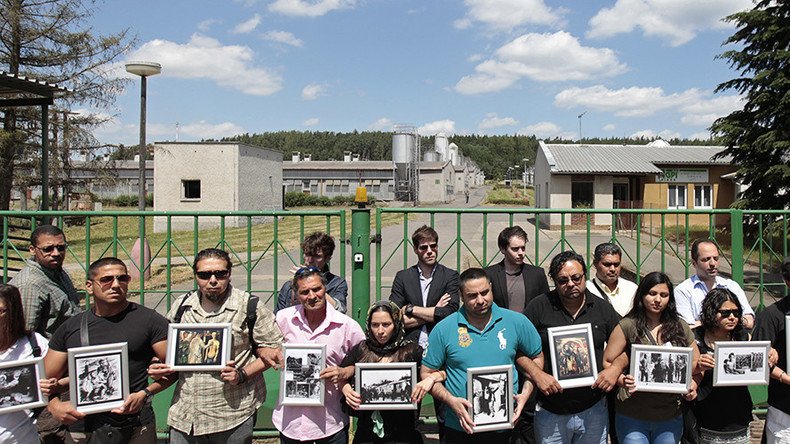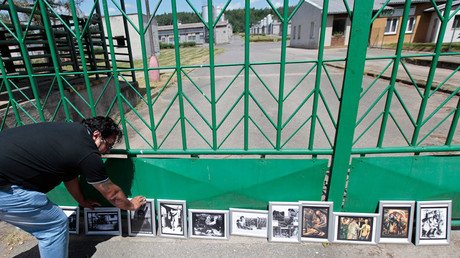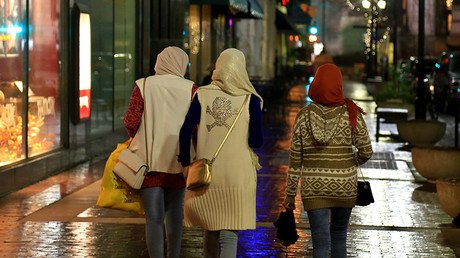‘Historical day for Roma dignity’: Czech govt to shut down pig farm on concentration camp site

The Czech government has moved to buy and remove a pig farm near Prague, located on the site of a former concentration camp where several hundred Romani people died during the Nazi occupation. The decision comes after mass anti-racism protests.
AGPI, the firm that owns the controversial pig breeding facility, announced on Monday it had accepted the financial compensation for the property offered by Poland’s Cultural Ministry, which led the talks on behalf of its government.
"I can confirm that AGPI has decided to accept the offer made by the Ministry of Culture," company’s deputy director Jan Cech said, as cited by Reuters.
The sum of the compensation was not revealed as per the agreement of the parties. However, it is estimated that the final sum can be as high as hundreds of millions of Czech Koruna ($1US = 22 Koruna).
Last week, the agriculture workers’ trade unions said that they would demand a compensation equivalent to two years’ wages for those who were forced out of work by the farm’s closure. AGPI, for its part, noted that they had only nine direct employees and no trade unions at the farm.
The details of the deal are expected to be thrashed out by September and sealed with signatures by AGPI and the Czech government.
READ MORE: Israeli student could face charges over theft of items from Auschwitz
The decision to set up a pig firm near the site of WWII internment camp for Roma people in the village of Lety was made in 1970. Since the history of the site was rediscovered by Czech historians in the 70s and in the 80s, Roma community has been calling on the Czech authorities to close down the farm. In 1995 a memorial was built at the site to commemorate the plight of Roma during the extermination. While several Czech governments have expressed eagerness to purchase and demolish the facility in the past, no one succeeded in this intention until now.
The incumbent government of Bohuslav Sobotka has been in highly confidential talks over relocation since January 2015.
Commenting on the breakthrough, Culture Minister Daniel Herman said that he “welcomes” the decision by AGPI and believes it brings the decade-old stalemate “towards a definitive solution of the whole issue.”
Meanwhile, the human rights activists from European Grassroots Antiracist Movement (EGAM), who led a protest action at the site, described the decision as a landmark in the history of local Roma community.
"Today marks a historical day for the dignity of Roma people, and a historical victory for the European civil society," the movement’s president, Benjamin Abtan, told Reuters, adding that by joint effort of activists from all over the world they managed to turn “Lety from a symbol of shame to that of victory and dignity.”
The farm in question stretches to 7.1 hectares and boasts 13,000 pigs. A few years ago, AGPI invested in the new cutting-edge technologies to be installed in half of the sheds in 13-hall complex.
After Germany occupied territory of modern Czech Republic, a labor camp was established in Lety, south Bohemia, in 1940, some 75 kilometers (47 miles) from Prague. Shortly afterwards it was reorganized into a concentration camp, preeminently, for Romani prisoners. It is estimated that at least 327 Roma, including 241 children, died in the camp and another 500 people were transferred to Auschwitz concentration camp in Germany. About 1,300 Czech Roma were kept in the camp between 1940 and 1943.














